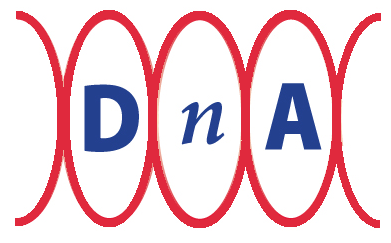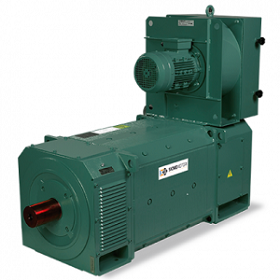DC Drives
What is a DC Drive?
A DC drive, short for Direct Current drive, is a type of motor controller that regulates the speed and direction of a DC motor. It typically consists of a power supply, a controller, and various feedback mechanisms.
The power supply converts AC (alternating current) voltage from the mains into a stable DC voltage, which is then fed into the controller. The controller adjusts the voltage and current supplied to the motor based on the desired speed and direction, as well as feedback from sensors like encoders or tachometers.
DC drives are commonly used in industrial applications where precise control over motor speed and torque is required, such as in conveyor systems, machine tools, and robotics. They offer advantages such as simple speed and torque control, high starting torque, and relatively low cost compared to other types of motor controllers. However, they also require regular maintenance due to the presence of brushes and commutators in the motor.
Here are some additional details about DC drives:
- Types of DC Drives:
- Armature Voltage Control: This method adjusts the voltage applied to the armature of the DC motor to control its speed.
- Field Flux Control: Here, the field winding of the motor is varied to control the speed.
- Armature Resistance Control: By changing the resistance in the armature circuit, the speed of the motor can be adjusted.
- Feedback Control: DC drives often incorporate feedback mechanisms to improve performance and accuracy. Common feedback devices include encoders, tachometers, and potentiometers. These devices provide information about the motor's speed, position, and other relevant parameters to the controller, allowing it to make precise adjustments.
- Regenerative Braking: Some DC drives are capable of regenerative braking, which means they can reverse the flow of current in the motor to slow it down or bring it to a stop. This feature is particularly useful in applications where rapid deceleration or controlled stopping is required, such as in elevators or cranes.
- Speed and Torque Control: DC drives offer excellent control over both speed and torque, making them suitable for a wide range of applications. By adjusting the voltage and current supplied to the motor, operators can precisely control its rotational speed and the amount of torque it produces.
- Applications: DC drives are commonly used in industries such as manufacturing, automotive, material handling, and aerospace. They are found in various types of machinery and equipment, including conveyor systems, printing presses, rolling mills, electric vehicles, and more.
- Advantages and Disadvantages:
- Advantages: DC drives offer precise control, high starting torque, and relatively simple operation. They are also cost-effective compared to some other types of motor controllers.
- Disadvantages: DC motors require regular maintenance due to the presence of brushes and commutators, which can wear out over time. Additionally, they are less efficient than some other types of motors, particularly at high speeds.
Overall, DC drives remain a popular choice for applications where precise control and reliable performance are essential. However, advancements in technology have led to the increasing use of alternative motor control methods, such as AC variable frequency drives (VFDs), especially in new installations.
Drives and Automation have over 20 years of experience with DC Drives and Motors, and offer a range of Drives from:
Control Techniques
Control Techniques is a well-known brand in the field of motor control solutions, including DC drives. They offer a range of DC drive products designed to provide precise control and reliable performance in various industrial applications. Here are some key features and offerings of Control Techniques DC drives:
- Mentor MP DC Drive: The Mentor MP series of DC drives is designed for high-power applications that require robust and reliable performance. These drives offer advanced features such as dual-axis control, regenerative braking, and advanced field control algorithms. They are suitable for applications such as steel rolling mills, cranes, and heavy-duty machinery.
- Options and Accessories: Control Techniques offers a range of options and accessories for their DC drives, including dynamic braking modules, field control modules, communication interfaces, and software tools for programming and configuration.

